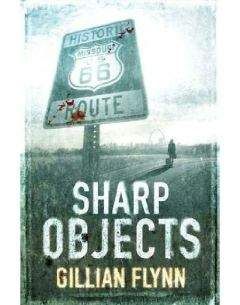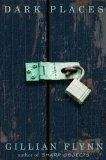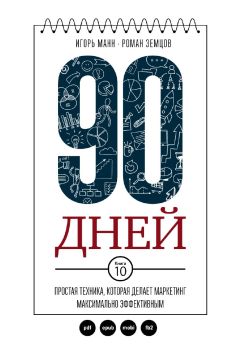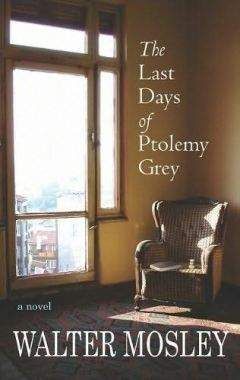Flynn, Gillian - Sharp_Objects
На сайте mybooks.club вы можете бесплатно читать книги онлайн без регистрации, включая Flynn, Gillian - Sharp_Objects. Жанр: Прочее издательство неизвестно,. Доступна полная версия книги с кратким содержанием для предварительного ознакомления, аннотацией (предисловием), рецензиями от других читателей и их экспертным мнением.
Кроме того, на сайте mybooks.club вы найдете множество новинок, которые стоит прочитать.

Flynn, Gillian - Sharp_Objects краткое содержание
Sharp_Objects читать онлайн бесплатно
Amma zipped through the gates of the plant. The guy at the booth just waved at her. I had a tougher time until I said the magic word: Adora.
“Right. Adora’s got a grown-up daughter. I remember,” said the old guy. His nametag said Jose. I tried to see if he was missing any fingers. Mexicans don’t get cushy box jobs unless they’re owed. That’s the way plants down here work: The Mexicans get the shittiest, most dangerous jobs, and the whites still complain.
Amma parked her cart next to a pickup and dusted herself off. Then, with a businesslike beeline, she walked straight past the slaughtering house, past the lines of pig holds, those wet pink snouts squirming between the air slats, and to a big metal barn of a building where the nursing happens. Most sows are repeatedly inseminated, brood after brood, till their bodies give way and they go to slaughter. But while they’re still useful, they’re made to nurse—strapped to their sides in a farrowing crate, legs apart, nipples exposed. Pigs are extremely smart, sociable creatures, and this forced assembly-line intimacy makes the nursing sows want to die. Which, as soon as they dry up, they do.
Even the idea of this practice I find repulsive. But the sight of it actually does something to you, makes you less human. Like watching a rape and saying nothing. I saw Amma at the far end of the barn, standing at the edge of one metal farrowing crate. A few men were pulling one pack of squealing piglets out of the stall, throwing another pack in. I moved to the far side of the barn so I could stand behind Amma without her seeing me. The pig lay nearly comatose on its side, its belly exposed between metal bars, red, bloody nipples pointing out like fingers. One of the men rubbed oil on the goriest one, then flicked it and giggled. They paid no attention to Amma, as if it were quite normal that she was there. She winked at one as they snapped another sow in a crate and drove off to get the next pack.
The piglets in the stall were swarming over the sow like ants on a glob of jelly. The nipples were fought over, bouncing in and out of mouths, jiggling tautly like rubber. The sow’s eyes rolled up into her head. Amma sat down cross-legged and gazed, fascinated. After five minutes she was in the same position, now smiling and squirming. I had to leave. I walked, first slowly, then broke into a scramble to my car. Door shut, radio blasting, warm bourbon stinging my throat, I drove away from the stink and sound. And that child.
Chapter Eight
Amma. All this time I’d had little real interest in her. Now I did. What I saw at the farm kept my throat clenched. My mother said she was the most popular girl in school, and I believed it. Jackie said she was the meanest, and I believed that, too. Living in the swirl of Adora’s bitterness had to make one a bit crooked. And what did Amma make of Marian, I wondered? How confusing to live in the shadow of a shadow. But Amma was a smart girl—she did her acting out away from home. Near Adora she was compliant, sweet, needy—just what she had to be, to get my mother’s love.
But that violent streak—the tantrum, the smacking of her friend, and now this ugliness. A penchant for doing and seeing nasty things. It suddenly reminded me of the stories about Ann and Natalie. Amma wasn’t like Marian, but maybe she was a little bit like them.
It was late afternoon, just before suppertime, and I decided to make a second pass at the Keenes. I needed a quote for my feature piece and if I couldn’t get it, Curry was going to pull me out. Leaving Wind Gap would cause me no pain personally, but I needed to prove I could handle myself, especially with my credibility faltering. A girl who slices herself open isn’t the first on the list for tough assignments.
I drove past the spot where Natalie’s body was discovered. What Amma deemed unworthy of stealing sat in a sad clump: three stumpy candles, long since blown out, along with cheap flowers still in their supermarket wrappers. A limp helium balloon in the shape of a heart bobbing listlessly.
In the driveway outside the Keene home, Natalie’s brother sat in the passenger seat of a red convertible talking with a blonde girl who almost matched his beauty. I parked behind them, saw them sneak quick looks, then pretend not to notice me. The girl began laughing animatedly, weaving her red-lacquered nails through the back of the boy’s dark hair. I gave them a quick, awkward nod, which I’m sure they didn’t see, and slipped past them to the front door.
Natalie’s mother answered. Behind her the house was dark and quiet. Her face stayed open; she didn’t recognize me.
“Mrs. Keene, I am so sorry to bother you at a time like this, but I really need to talk with you.”
“About Natalie?”
“Yes, may I come in?” It was a nasty trick to sneak my way into her home without identifying myself. Reporters are like vampires, Curry likes to say. They can’t come into your home without your invitation, but once they’re there, you won’t get them out till they’ve sucked you dry. She opened the door.
“Oh, it feels nice and cool in here, thanks,” I said. “It was supposed to peak at ninety today, but I think we passed that.”
“I heard ninety-five.”
“I believe it. Could I trouble you for a glass of water?” Another time-honored ploy: A woman is less likely to throw you out if she’s offered her hospitality. If you have allergies or a cold, asking for a tissue is even better. Women love vulnerability. Most women.
“Of course.” She paused, looking at me, as if she felt she should know who I was and was too embarrassed to ask. Morticians, priests, police, medics, mourners—she’d probably met more people in the past few days than she had the previous year.
While Mrs. Keene disappeared into the kitchen, I peered around. The room looked completely different today, with furniture moved back into the proper places. On a table not far away sat a photo of the two Keene children. They were each leaning on a side of a big oak tree, dressed in jeans and red sweaters. He was smiling uncomfortably, like he was doing something best left undocumented. She was maybe half his height, and looked determinedly serious, like the subject of an old daguerreotype.
“What’s your son’s name?”
“That’s John. He’s a very kind, gentle boy. I’ve always been proudest of that. He just graduated from high school.”
“They bumped it up a little—when I went to school here, they made us wait till June.”
“Mmmm. Nice to have the longer summers.”
I smiled. She smiled. I sat down and sipped my water. I couldn’t remember what Curry advised once you tricked your way into someone’s living room.
“We actually haven’t properly met. I’m Camille Preaker. From the Chicago Daily Post? We spoke briefly on the phone the other night.”
She stopped smiling. Her jaw started working.
“You should have said that before.”
“I know what a horrible time this is for you, and if I could just ask you a few questions…”
“You may not.”
“Mrs. Keene, we want to be fair to your family, that’s why I’m here. The more information we can give people…”
“The more papers you can sell. I’m sick and tired of all this. Now I will tell you one last time: Do not come back here. Do not try to contact us. I have absolutely nothing to say to you.” She stood over me, leaned down. She wore, as she had at the funeral, a beaded necklace made of wood, with a big red heart at its center. It bobbed back and forth off her bosom like a hypnotist’s watch. “I think you are a parasite,” she spat at me. “I think you are disgusting. I hope someday you look back and see how ugly you are. Now please leave.”
She trailed me to the door, as if she wouldn’t believe I was truly gone until she saw me step outside her home. She closed the door behind me with enough force to make her doorbell chime lightly.
I stood on the stoop blushing, thinking to myself what a nice detail that heart necklace would make in my story, and saw the girl in the red convertible staring at me. The boy was gone.
“You’re Camille Preaker, right?” she called out.
“Yes.”
“I remember you,” the girl said. “I was just a little thing when you lived here, but we all knew you.”
“What’s your name?”
“Meredith Wheeler. You wouldn’t remember me, I was just a little goofball when you were in high school.”
John Keene’s girlfriend. Her name was familiar, thanks to my mother’s friends, but I wouldn’t have remembered her personally. Hell, she’d have been all of six or seven last time I lived here. Still, I wasn’t surprised she knew me. Girls growing up in Wind Gap studied the older girls obsessively: who dated the football stars, who was homecoming queen, who mattered. You traded favorites like baseball cards. I still remember CeeCee Wyatt, Calhoon High prom queen from when I was a girl. I once bought eleven drugstore lipsticks trying to find the exact shade of pink she wore when she said hello to me one morning.
“I remember you,” I said. “I can’t believe you’re driving.”
She laughed, seemed pleased by my lie.
“You’re a reporter now, right?”
“Yes, in Chicago.”
“I’ll get John to talk to you. We’ll be in touch.”
Meredith zipped away. I’m sure she felt quite pleased with herself—We’ll be in touch—reapplying her lip gloss and thinking not at all of the dead ten-year-old that was to be the subject of conversation.
I phoned the main hardware store in town—the one where Natalie’s body had been found. Without identifying myself, I began chatting about maybe redoing a bathroom, maybe getting new tiles. Not too hard to steer the conversation to the killings. I suppose a lot of people have been rethinking their home security lately, I suggested.
“That’s a fact, ma’am. We’ve had a run on chain locks and double bolts in the past few days,” said the grumbly voice.
“Really? How many have you gone through?”
“About three dozen, I’d guess.”
“Mostly families? People with children?”
“Oh, yeah. They’re the ones got reason to worry, right? Horrible thing. We’re hoping to make some sort of donation to little Natalie’s family.” He paused. “You want to come down, look at some tile samples?”
“I might just do that, thanks.”
One more reporting chore off my list, and I didn’t even have to subject myself to namecalling from a grieving mother.
For our dinner meeting, Richard picked Gritty’s, a “family restaurant” with a salad bar that featured every kind of food but salad. The lettuce always sat in a small container at the end, a greasy, pale afterthought. Richard was chatting up the jolly-fat hostess when I flustered in twelve minutes late. The girl, whose face matched the pies revolving in the case behind her, didn’t seem to notice me hovering. She was immersed in the possibilities of Richard: In her head, she was already writing her diary entry for the night.
“Preaker,” he said, eyes still on the girl. “Your tardiness is a scandal. You’re lucky JoAnn was here to keep me company.” The girl giggled, then glared at me, leading us to a corner booth where she slapped a greasy menu in front of me. On the table, I could still see the outline of the previous customer’s glassware.
The waitress appeared, slid me a glass of water the size of a shot, then handed Richard a styrofoam trough of soda pop. “Hey Richard—I remembered, see?”
“That’s why you’re my favorite waitress, Kathy.” Cute.
“Hi, Camille; I heard you were in town.” I didn’t want to hear that phrase ever again. The waitress, upon second look, was a former classmate of mine. We’d been friends for a semester sophomore year because we’d dated best buddies—mine was Phil, hers was Jerry—jock guys who played football in the fall and wrestled in the winter, and threw parties year-round in Phil’s basement rec room. I had a flash memory of us holding hands for balance while we peed in the snow just outside the sliding glass doors, too drunk to face his mom upstairs. I remember her telling me about having sex with Jerry on the pool table. Which explained why the felt was sticky.
“Hey, Kathy, it’s good to see you. How’s it going?”
She threw her arms out and cast a glance around the restaurant.
“Oh, you can probably guess. But hey, that’s what you get for sticking around here, right? Bobby says hi. Kidder.”
“Oh, right! God…” I’d forgotten they got married. “How is he?”
“Same old Bobby. You should drop by some time. If you have time. We’re over on Fisher.”
I could picture the clock ticking loudly as I sat in the living room of Bobby and Kathy Kidder, trying to come up with something to say. Kathy would do all the talking, she always had. She was the kind of person who’d read street signs aloud rather than suffer silence. If he was still the same old Bobby, he was quiet but affable, a guy with few interests and slate blue eyes that flicked into focus only when talk turned to hunting. Back in high school, he saved the hooves of all the deer he killed, always had the latest pair in his pocket, and would pull them out and tap drumbeats with them on whatever hard surface was available. I always felt like it was the dead deer’s Morse code, a delayed mayday from tomorrow’s venison.
“Anyway, you guys doing the buffet?”
I asked for a beer, which brought forth a mighty pause. Kathy glanced back over her shoulder at the clock on the wall. “Mmmm, we’re not supposed to serve till eight. But I’ll see if I can sneak you one—old times’ sake, right?”
“Well, I don’t want to get you in trouble.” Just like Wind Gap to have arbitrary drinking rules. Five o’clock would make sense, at least. Eight o’clock was just someone’s way of making you feel guilty.
“Lord, Camille, it’d be the most interesting thing that’s happened to me in quite a while.”
While Kathy went to purloin me a drink, Richard and I filled plates with chicken-fried steak, grits, mashed potatoes, and, in Richard’s case, a jiggly slab of Jell-O that was melting into his food by the time we returned to our table. Kathy had left a bottle of beer discreetly on my seat cushion.
“Always drink this early?”
“I’m just having a beer.”
“I could smell liquor on your breath when you came in, underneath a layer of Certs—wintergreen?” He smiled at me, as if he were simply curious, no judgments. I bet he glowed in the interrogation room.
“Certs, yes; liquor, no.”
In truth, that’s why I’d been late. Right before I pulled into the parking lot, I realized the quick nip I took after leaving the Keenes needed some quick covering up, and drove another few blocks to the convenience store to buy some mints. Wintergreen.
“Okay, Camille,” he said gently. “No worries. It’s none of my business.” He took a bite of mashed potatoes, dyed red from the Jell-O, and stayed silent. Seemed slightly abashed.
“So, what do you want to know about Wind Gap?” I felt I’d disappointed him keenly, like I was a careless parent reneging on a birthday promise to take him to the zoo. I was willing to tell him the truth then, to answer unfailingly the next question he asked in order to make it up to him—and I suddenly wondered if that was the reason he’d challenged my drinking to begin with. Smart cop.
Похожие книги на "Sharp_Objects", Flynn
Flynn читать все книги автора по порядку
Flynn - все книги автора в одном месте читать по порядку полные версии на сайте онлайн библиотеки mybooks.club.




